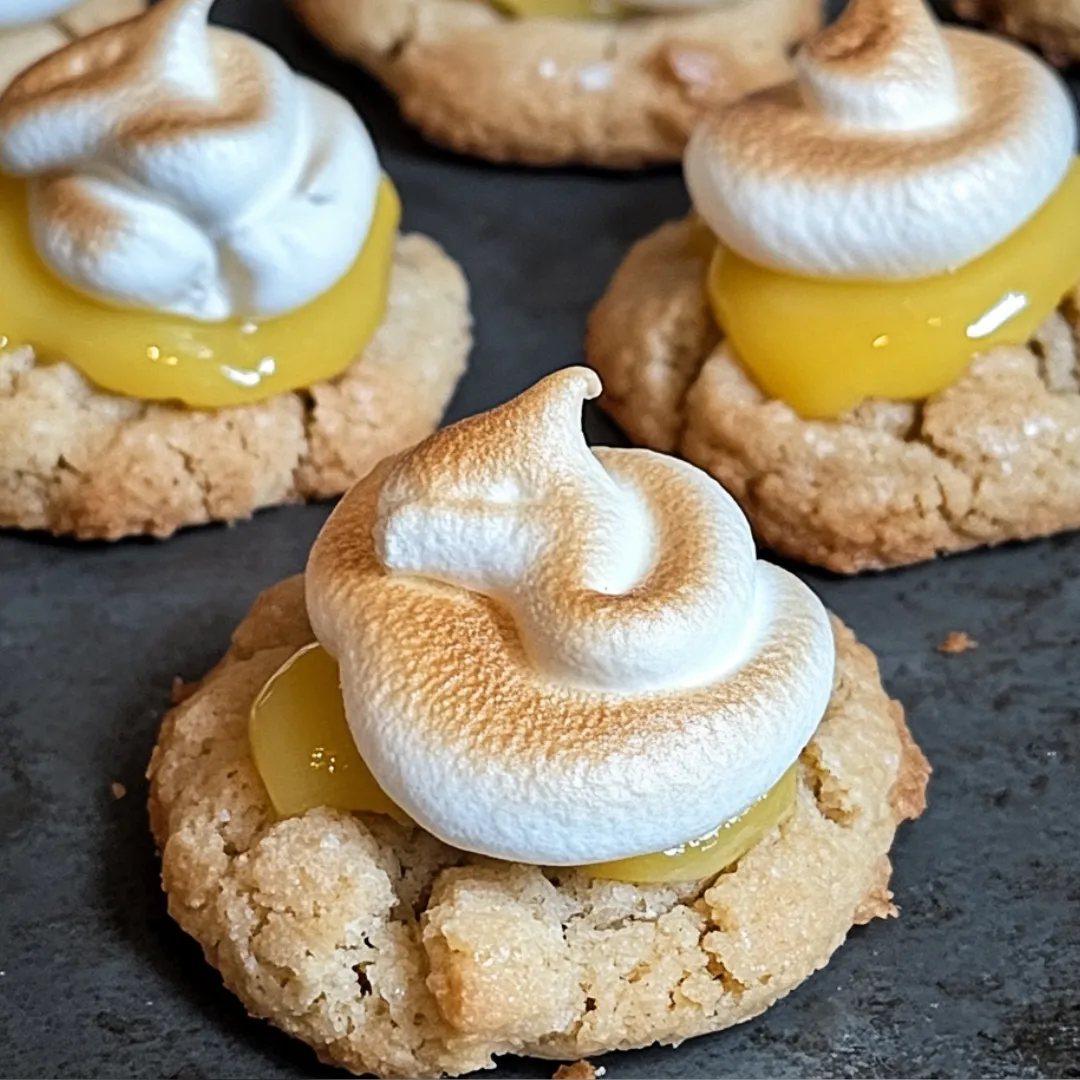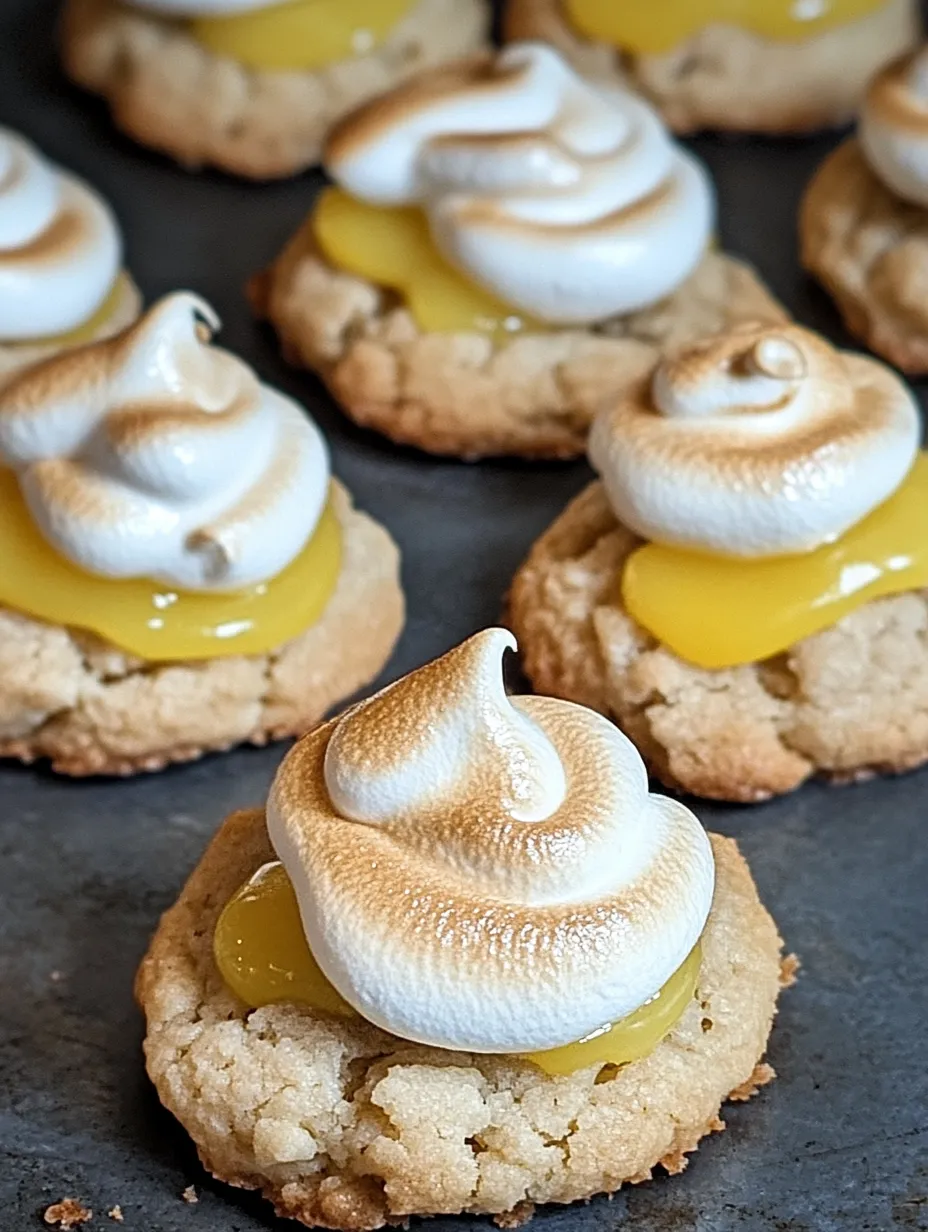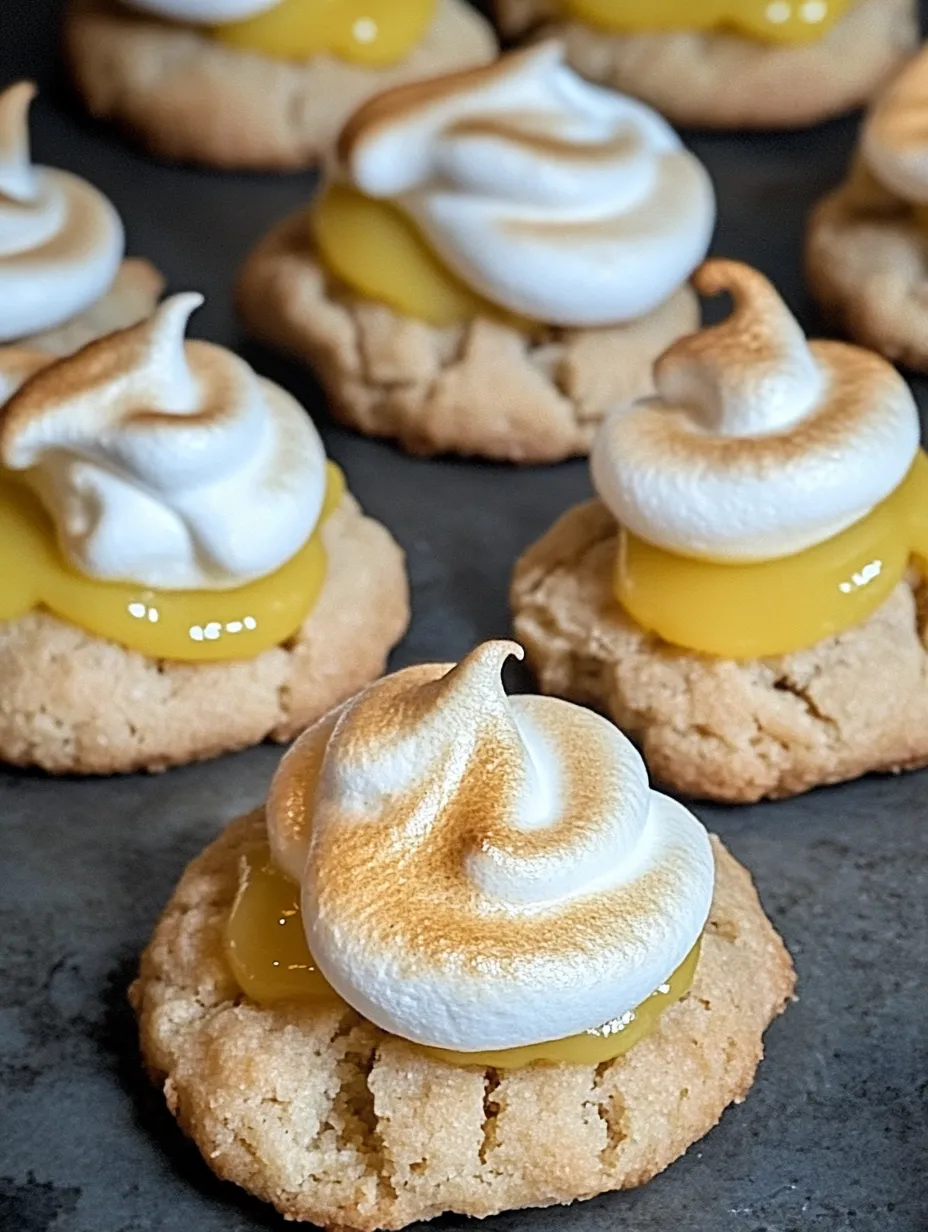 Pin
Pin
Light as clouds with a zingy kick, these lemon meringue cookies blend fluffy sweetness with tangy citrus in every bite. They're airy, crisp treats that simply melt away in your mouth, bringing an elegant touch to dessert spreads or tea time gatherings.
I whipped these up for the first time at my niece's baby shower and they vanished in seconds. They've since become my go-to contribution that everyone asks for at family get-togethers and holiday cookie swaps.
What You'll Need
- Lemon zest and fresh juice: these give that sunshine-bright flavor without taking over the gentle meringue base
- Egg whites: make sure they're at room temp for better separation and maximum fluffiness
- Sugar (granulated): gives structure to your meringue while creating that satisfying crisp-outside, chewy-inside combo
- Cornstarch: the secret behind that dreamy dissolve-in-your-mouth feeling
- White vinegar: keeps those egg whites steady so your meringues stay perfectly shaped
- Salt: brings all the tastes together and cuts through sweetness
Let's Make Them
- Get everything ready:
- First, warm your oven to exactly 225°F. Put parchment paper on your baking sheets (don't use wax paper). Make absolutely sure your mixing bowl has zero grease—even tiny amounts can ruin your meringue. I always give my bowl a quick wipe with vinegar on a paper towel to get rid of any hidden oils.
- Whip up your base:
- Beat those egg whites at medium speed until you see lots of bubbles forming, kind of like a frothy bubble bath. Toss in your salt, then turn up your mixer to medium-high. Keep going until you see soft peaks—little mountains that gently curl over when you lift the beaters.
- Add sugar bit by bit:
- This part can't be rushed. Drop in your sugar just one tablespoon at a time, waiting for each spoonful to completely mix in before adding another. Yes, this might take 8-10 minutes, but it's worth it for perfect meringue. You want it turning thick and shiny, and when you rub some between your fingers, it should feel completely smooth with no gritty sugar.
- Mix in your stabilizers:
- Once you've got stiff peaks, carefully fold in cornstarch and vinegar with a rubber spatula. Use gentle down-across-up-over motions while turning the bowl. This keeps all those tiny air bubbles intact for super light cookies.
- Add the lemon punch:
- Fold in lemon zest and juice last with just 4-5 gentle strokes. The mixture will loosen up a bit from the acid—that's totally fine. It should still hold its shape well enough for piping.
- Shape your cookies:
- Scoop the meringue into a piping bag with a big star tip attached. Pipe 2-inch mounds onto your parchment-lined sheets, leaving about an inch between each. Don't have piping gear? No problem—just drop spoonfuls using two regular spoons for a more rustic look.
- Bake slowly:
- Pop your trays in the oven and let them bake for a full hour. Don't peek by opening the door—that sudden temperature drop can make your cookies crack or sink.
- Let them cool gradually:
- When time's up, just turn off the oven but leave your cookies inside with the door fully closed for 30 minutes. Then crack the door open slightly and wait another 30 minutes. This slow cooling helps your meringues keep their perfect texture.
 Pin
Pin
My grandma showed me how to make plain vanilla meringue cookies years ago. The lemon twist came after my trip through southern Italy, where I fell head over heels for everything citrus. That bright, fresh flavor turns ordinary meringues into something you can't stop eating.
Why Meringues Work
Great meringue cookies come down to egg foam science. When you beat those whites, you're basically unfolding proteins and letting them wrap around air bubbles. Adding sugar slowly lets it dissolve in the egg moisture, creating a syrup that coats these protein structures and keeps them stable while baking. The cornstarch and vinegar play backup by stopping the proteins from getting too tight, which is what keeps your meringues tender instead of tough.
Fixing Common Problems
If your meringue won't form stiff peaks, your bowl probably had some hidden grease or you got a speck of yolk in your whites. Even tiny fat amounts will mess up your whipping. Weather matters too! On super humid days, meringues might stay sticky instead of drying properly in the oven. When possible, save this recipe for dry days for best results.
Tasty Twists To Experiment With
The lemon version rocks, but don't stop there! Switch to lime or orange for different citrus vibes. Want something fancy? Try adding a teaspoon of culinary lavender with the lemon. During Christmas, I sometimes mix in a quarter teaspoon of peppermint extract and some crushed candy canes at the very end. The basic meringue works like a blank slate for whatever flavors you're craving.
 Pin
Pin
Keeping Them Fresh
Put your finished cookies in an airtight container at room temp with parchment paper between the layers so they don't stick together. They'll stay crisp and delicious for up to a week. If they start getting soft because of humidity, you can crisp them up again in a 200°F oven for about 10 minutes. Just let them cool completely before storing them again.
FAQs About the Recipe
- → How do I get stiff peaks when making meringue?
Make sure your bowl and beater are spotless and dry. Whip the egg whites at medium-high until foamy, then slowly add sugar until you get shiny, firm peaks.
- → What's the point of adding vinegar to meringue cookies?
Vinegar makes the meringue more stable, helping your cookies turn out crisp and dry without breaking too easily.
- → Can I swap fresh lemon for the bottled stuff?
Fresh squeezed lemon gives you better flavor, but in a pinch, the bottled kind will do the job.
- → What temperature should I bake these cookies at?
Go low and slow at about 225°F (110°C) so they dry out and get crispy without turning brown.
- → How can I keep my meringue fluffy?
Mix things like cornstarch and lemon zest in very gently and don't overdo it, so you don't knock the air out.
